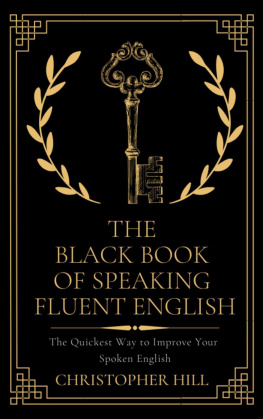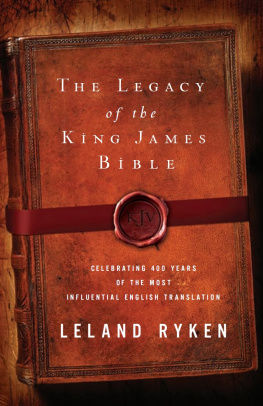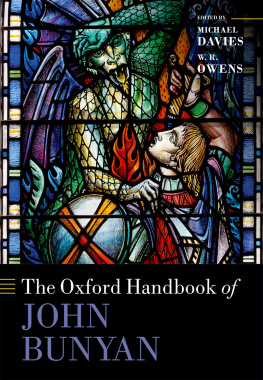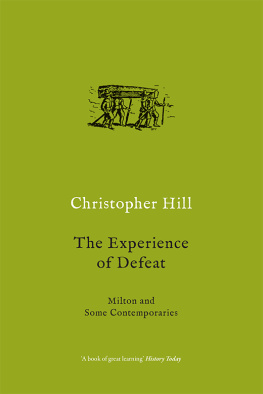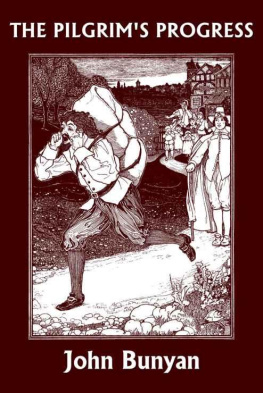A Turbulent, Seditious,
and Factious People
John Bunyan and his Church
16281688

CHRISTOPHER HILL

This edition first published by Verso 2016
First published 1988
Christopher Hill 1988, 1989, 2016
All rights reserved
The moral rights of the author have been asserted
1 3 5 7 9 10 8 6 4 2
Verso
UK: 6 Meard Street, London W1F 0EG
US: 20 Jay Street, Suite 1010, Brooklyn, NY 11201
versobooks.com
Verso is the imprint of New Left Books
ISBN-13: 978-1-78478-686-1
ISBN-13: 978-1-78478-688-5 (US EBK)
ISBN-13: 978-1-78478-687-8 (UK EBK)
British Library Cataloguing in Publication Data
A catalogue record for this book is available from the British Library
Library of Congress Cataloging-in-Publication Data
A catalog record for this book is available from the Library of Congress
Printed in the UK by CPI Mackays
For Bridget,
beloved comrade and fellow pilgrim
PREFACE
I have incurred many debts in writing this book. My long-standing interest in Bunyan was rekindled by an invitation to give a lecture in Bedford in 1978, as part of the towns celebration of the tercentenary of the publication of The Pilgrims Progress. But the book derives more directly from the Sir D. Owen Evans Memorial Lectures which I was invited to give in Aberystwyth in 1985. I am extremely grateful to Principal and Mrs Owen for their gracious hospitality on this occasion. The present volume also incorporates the Miriam Leranbaum Memorial Lecture delivered at the State University of New York, Binghamton, in 1985. Thanks are due to Professor and Mrs Norman Burns for generous hospitality there. I subsequently had many lively discussions about Bunyan in England, the United States, Australia, and New Zealand, from which I learnt a great deal. The visit to Australia was made possible by an invitation extended to my wife and myself to spend a term at the University of Adelaide in 1987. It is difficult to express the gratitude which we feel for the warmth, stimulus, and leisure for writing which we enjoyed there.
My object in this book has been to set Bunyan against the history of his own turbulent times, which formed him and which he influenced; and to rescue him from those who see him as the anatomist of a timeless human condition. I am very conscious of standing on the shoulders of giants. There are the great Bunyan editorsGeorge Offor, H. G. Tibbutt, G. Parsloe, F. M. Harrison, and G. B. Harrison (whom I had the privilege of meeting in New Zealand in 1987). There is the never-to-be-forgotten biographer John Brown, Hale White (Mark Rutherford), and the polymath genius Jack Lindsay; W. York Tindall and Henri Talon. More recently Joyce Godber, Roger Sharrock, R. L. Greaves, James Turner, and Graham Midgley have illuminated Bunyans career and writings. As always seems to happen, I found myself following many trails which L. B. Wright had blazed. The Biographical Dictionary of British Radicals in the Seventeenth-Century, edited by R. L. Greaves and R. Zaller, proved invaluable. David Zarets The Heavenly Contract was most useful. I am deeply indebted to Rudolf G. Wagner and Valentine Boss whose work stimulated my interest in Bunyans international impact.
I did not read Richard Ashcrafts seminal Revolutionary Politics and Lockes Two Treatises of Government until my book was nearly finished. I found it stimulating in several respects. Ashcraft demonstrates that Lockes biographers have ignored evidence for his involvement in radical politics because they could not conceive of a philosopher indulging in anything so practical as politics or anything so naughty as radical politics. Bunyan was not engaged in conspiracy as Locke was, but his piety did not preclude radicalism. Ashcraft provides new and convincing evidence that many of Bunyans dissenting colleagues and friends were actually involved in revolutionary conspiracy. He confirms R. L. Greavess Deliver Us From Evil: The Radical Underground in Britain, 16601663 (Oxford UP, 1986). Both books will help us to a better understanding of the society in which Bunyan lived, and so of Bunyan himself and of his writings. Professor Greaves and Roger Lane removed some howlers by reading the proofs.
Ian Gentles, J. Sears McGee, Aileen Ross, and Judy Sproxton all generously permitted me to read work in advance of publication. I also owe thanks for help and kindness to Bernard Capp, Geoff Eley, Robert Evans, Kenneth Haley, Anne Laurence, Roger Lonsdale, Isabel Rivers, Roger Sharrock, Michael Tolley, and Austin Woolrych. I cannot find words to express my gratitude to Bob Owens, who not only put his own research at my disposal but read the whole of this book at a penultimate stage. He saved me from many errors, forced me to rethink some slovenly passages, and made helpful positive suggestions. The book would have been in much worse shape without his seasonable counsel. Kim Scott Walwyn, Frances Whistler, and John Was at the Oxford University Press were invariably understanding and supportive; Elisabeth Sifton at Knopf was, as always, indefatigable in correcting my errors and making helpful suggestions. My daughter Dinah nobly retyped the whole thing from a very messy typescript. The book is dedicated to Bridget, who was a mine of extensive and peculiar information about Baptists, marriage, women, self-denial, and many other relevant matters. She suffered and shared Bunyan for many years, providing constant stimulus, encouragement, and sympathy. She even read the proofs.
C.H.
CONTENTS
Appendix
The Radicalism of the New Model Army and the Existence of the Ranters
The following abbreviations have been used for Bunyans writings:
| MW | Miscellaneous Works (Oxford UP). |
| Offor | The Works of John Bunyan, ed. G. Offor (3 vols., 1860). |
| GA | Grace Abounding to the Chief of Sinners, ed. R. Sharrock (Oxford UP, 1962). |
| Mr. B. | The Life and Death of Mr. Badman, in Offor, iii. |
| Poems | The Poems, ed. Graham Midgley (MW vi (1980)). |
| HW | The Holy War, ed. R. Sharrock and J. F. Forrest (Oxford UP, 1980). |
| PP | The Pilgrims Progress from this world to that which is to come, ed. J. B. Wharey and R. Sharrock (Oxford UP, 1967). |
| Genesis | An Exposition on the Ten First Chapters of Genesis, and Part of the Eleventh (posthumous), in Offor, ii |





